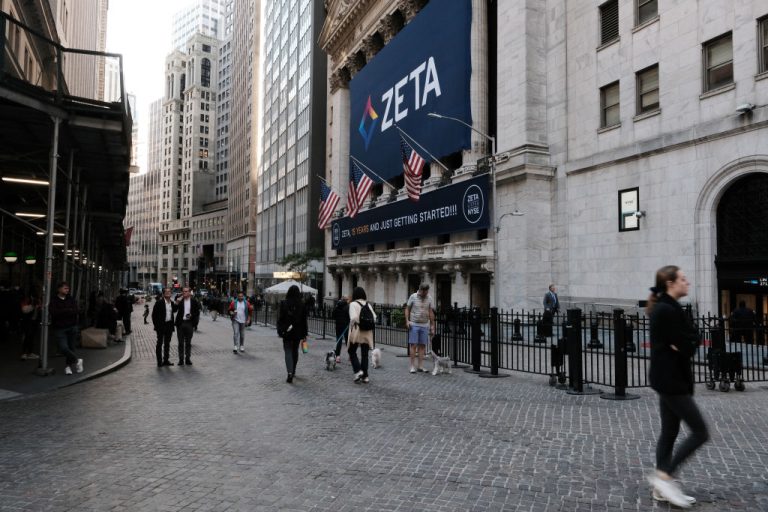Wall Street tumbled on Thursday on worries that the Federal Reserve’s aggressive fight against inflation could hobble the U.S. economy, and as investors fretted about a rout in global currency and debt markets.
With tech-related heavyweights Tesla, Apple and Nvidia slumping 5% or more, the Nasdaq was near its lowest closing level of 2022, set in mid-June.
The S&P 500 was on track for its lowest close since November 2020. It has lost 8 percent in September.
A sell-off in U.S. Treasuries resumed as Fed officials gave no indication the U.S. central bank would moderate or change its plans to aggressively raise interest rates to bring down high inflation.
Cleveland Fed President Loretta Mester said she does not see distress in U.S. financial markets that would alter the central bank’s campaign to lower inflation through rate hikes that have taken the Fed funds rate to a range of 3.0 percent to 3.25 percent.
Success
You are now signed up for our newsletter
Success
Check your email to complete sign up
Data showed the number of Americans filing new claims for unemployment benefits fell to a five-month low last week as the labor market remains resilient despite the Fed’s aggressive interest rate hikes.
“Good news is bad news in that today’s job number again reiterates that the Fed has a long way to go,” said Phil Blancato, head of Ladenburg Thalmann Asset Management in New York. “The fear in the marketplace is that the Fed is going to push us into a very deep recession, which will cause an earnings recession, which is why the market is selling off.”
The yields on many Treasuries, which are considered virtually risk-free if held to maturity, now dwarf the S&P 500’s dividend yield, which recently stood at about 1.8 percent, according to Refinitiv Datastream.
In afternoon trading, the Dow Jones Industrial Average was down 2.17 percent at 29,041.04 points, while the S&P 500 lost 2.72 percent to 3,617.89.
The Nasdaq Composite dropped 3.62 percent to 10,651.56.
All of the 11 S&P 500 sector indexes dropped, with consumer discretionary tumbling 4 percent as automobile stocks slumped.
CarMax Inc slumped over 20 percent after the used-car retailer missed expectations for second-quarter results, hurt by consumers cutting spending amid inflation, rising interest rates and higher car prices.
General Motors Co and Ford Motor Co also took a hit, each dropping more than 6 percent.
Airline carriers and cruise operators fell on canceled or delayed trips after Hurricane Ian hit Florida’s Gulf Coast with catastrophic force.
American Airlines, United Airlines Holdings and Delta Air Lines each fell more than 4 percent.
Cruise ship companies Norwegian Cruise Line Holdings Ltd and Carnival Corp fell 6.4 percent and 7.8 percent, respectively.
Declining issues outnumbered advancing ones on the NYSE by a 7.64-to-1 ratio; on Nasdaq, a 4.12-to-1 ratio favored decliners.
The S&P 500 posted no new 52-week highs and 100 new lows; the Nasdaq Composite recorded six new highs and 447 new lows.
By Reuters (Reporting by Susan Mathew, Ankika Biswas and Shreyashi Sanyal in Bengaluru; Additional reporting by Medha Singh; Editing by Anil D’Silva, Arun Koyyur and Jonathan Oatis)







